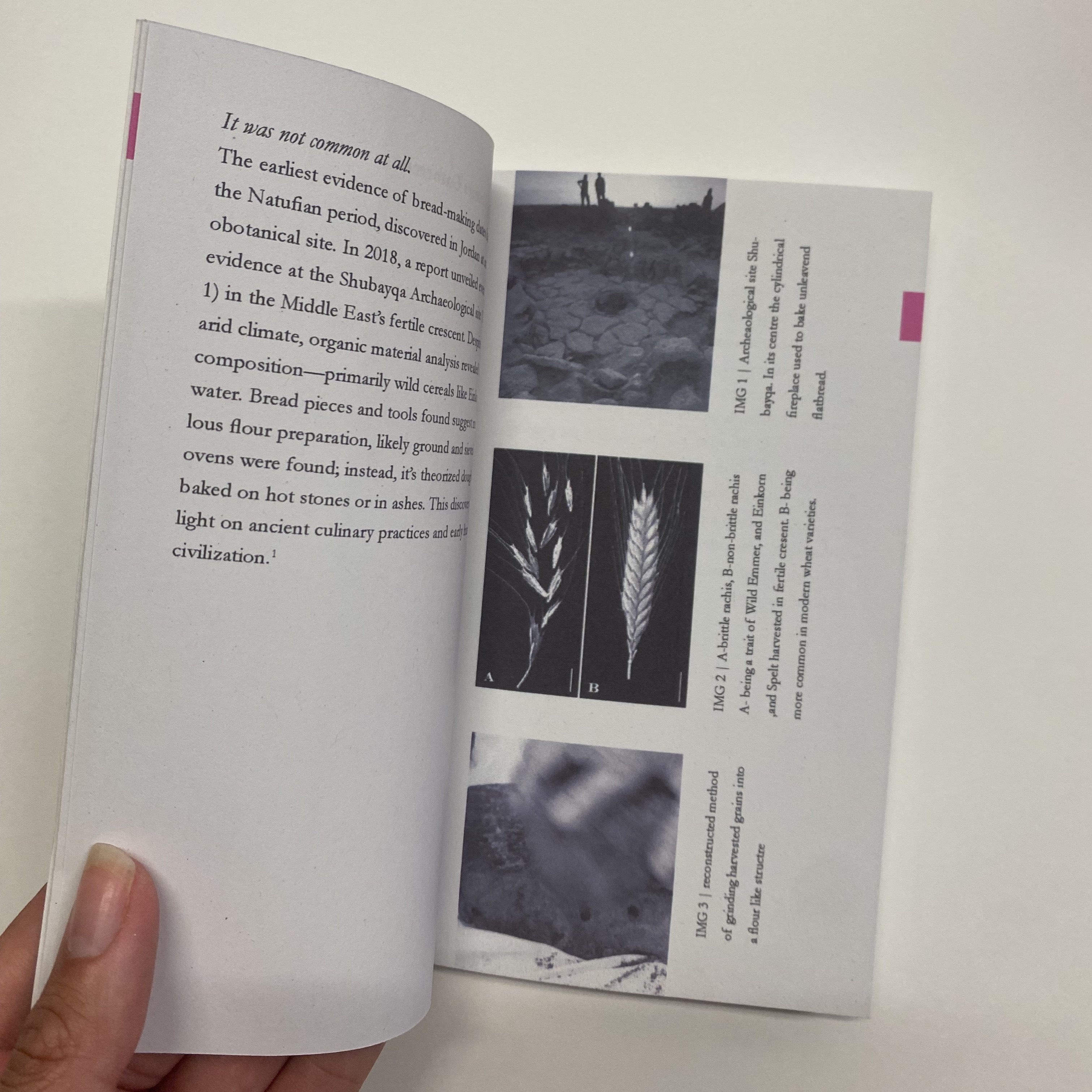
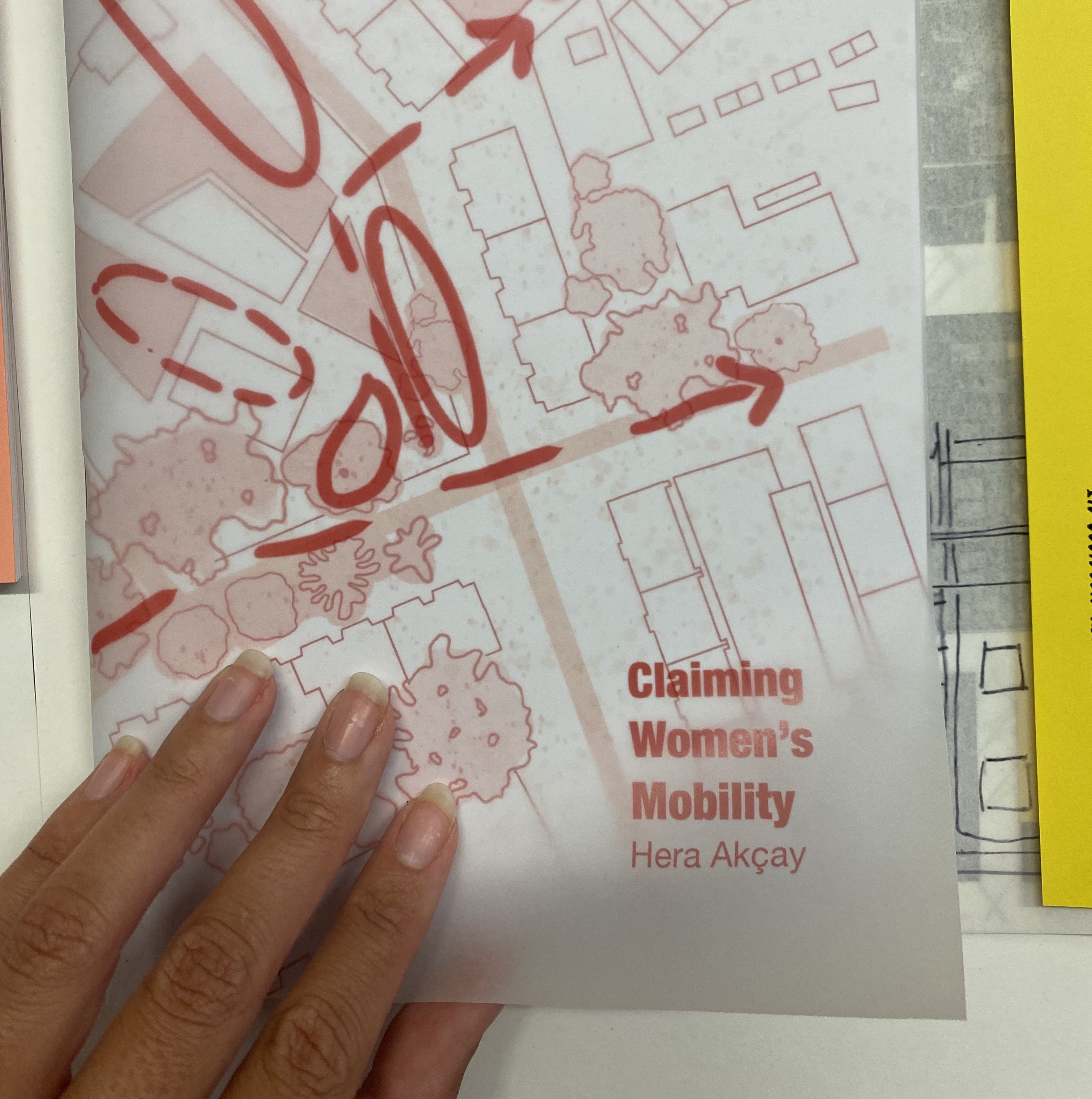
Theory & Writing
Flows
Travel
Skills
These assignments may vary from abstract research topics to concrete design issues which consists both of a design process and theoretical research that are intertwined. The theoretical process is meant to build up a framework to anchor the research, broaden the vocabulary and to serve as a roadmap to deepen and support a clarity of thinking. Through critical reflection students are stimulated to postulate theory, to interpret case studies, to emerge into field research and to evaluate personal experiences, ultimately as a challenging process of self-discovery.
Writing is a means to produce insights and advance a critical discourse by reporting on the research in a text as well as to create narratives as a means to structure the culminating knowledge and arguments for taking a specific position. Thinking in a well-structured way about the content of a text will support the student to define the aimed-for design results and offer insight into the distinct role the students would like to play in a specific field of expertise.
The 1st year programme results in written documents that vary from a manifesto (Studio INTER), to an essay (Studio SPACE), and research paper (Studio URBAN). In the graduation year, writing a research paper covers the first semester as an effort to reveal the potentiality of the research to converge into a design tool and to brainstorm on what could be the design challenge of the graduation project.


The Flows approach to spatial design strives for a systemic understanding of our environment and is an essential tool for engineering the ambitions of sustainability and circularity. One flow can easily be both a residue of one system and a resource for another, like demolition materials can become construction materials and waste heat can function as a source of energy. An early example of a Flows design can still be found in the Dutch landscape: thanks to its combination of energy harvesting, crop storage, food processing, worker inhabitation and retail, the windmill is an icon of integration of multiple flows in one physical space.
With the growing awareness of the limits to the world’s natural resources, the Flows approach supports students to reason with this reality and to understand the impact design has on our built environment. Through a Flows analysis, students map and analyze different Flows layers and search for possible interconnections. Flows thus not only manifest itself in the research phase of a project but also steers the design process itself, be it in domestic/private spheres, urban or rural public places.
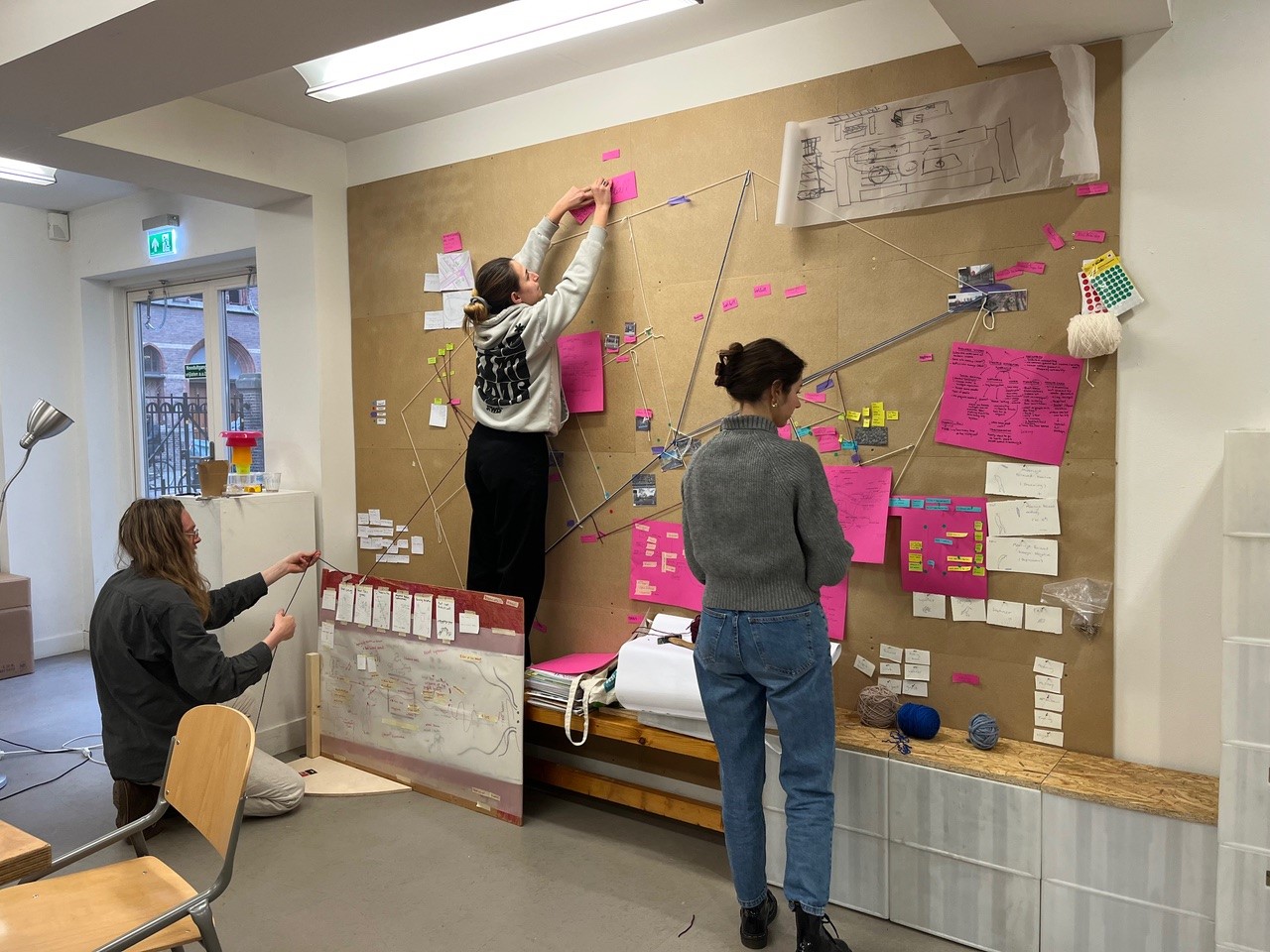
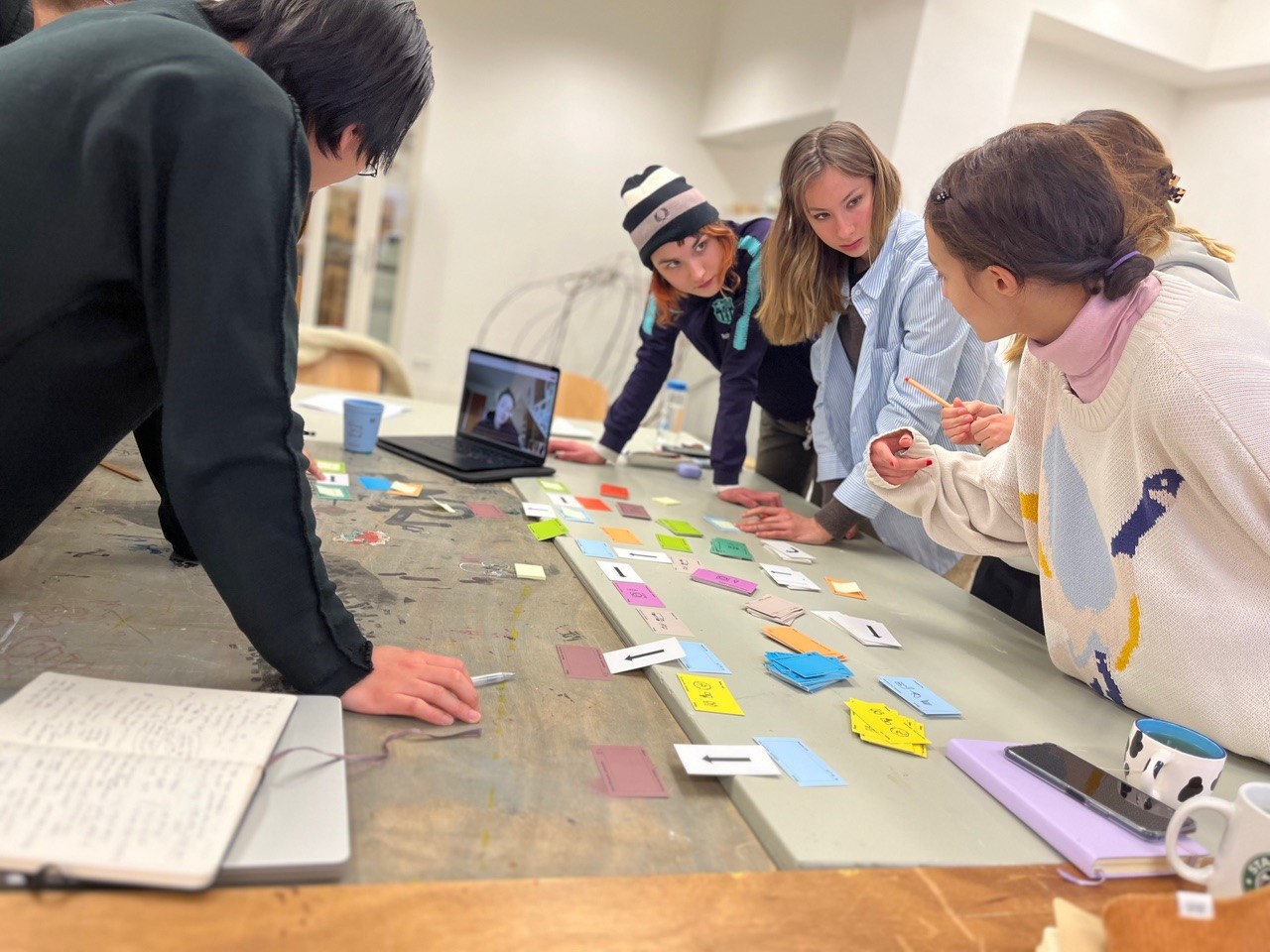
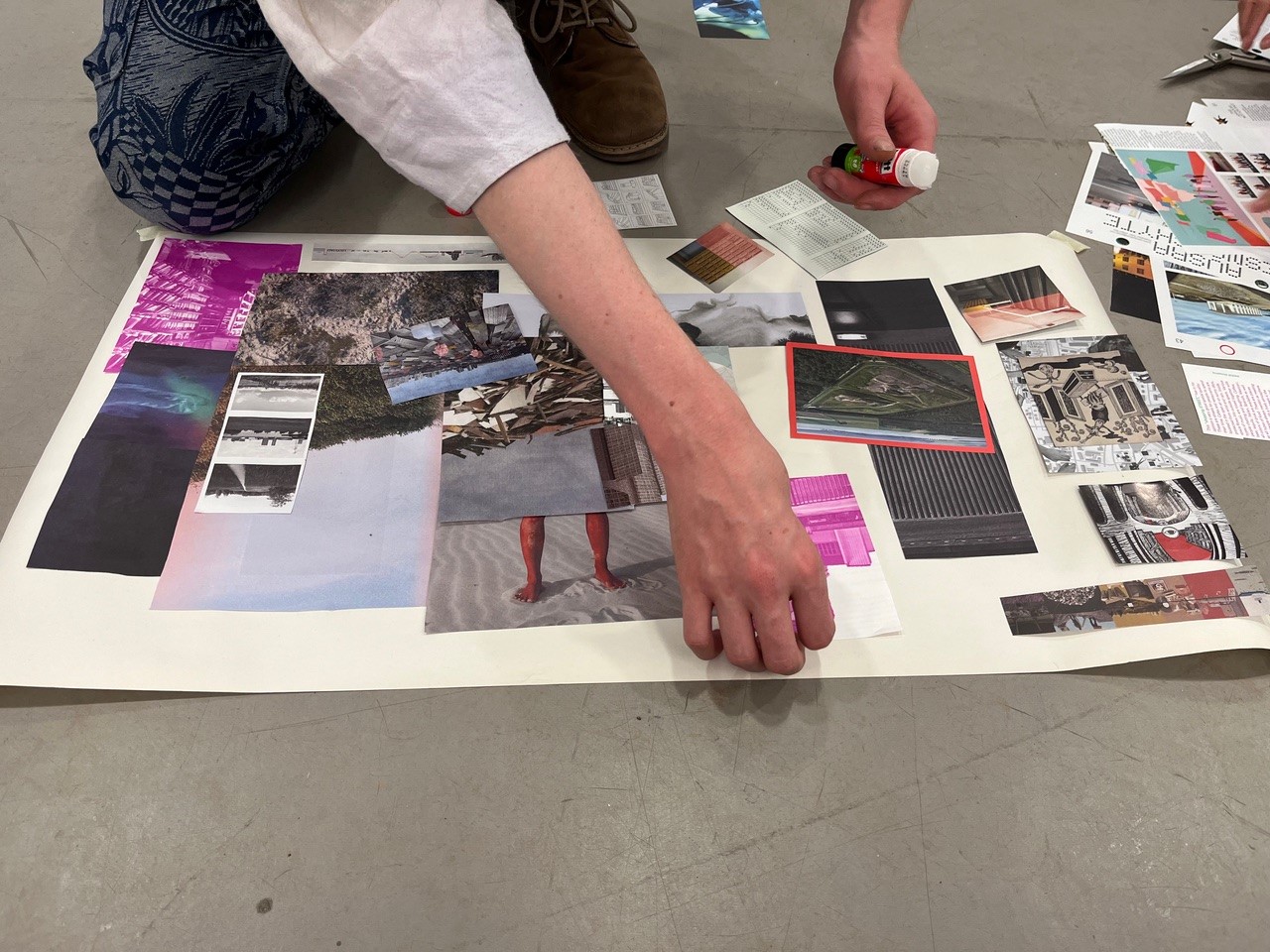
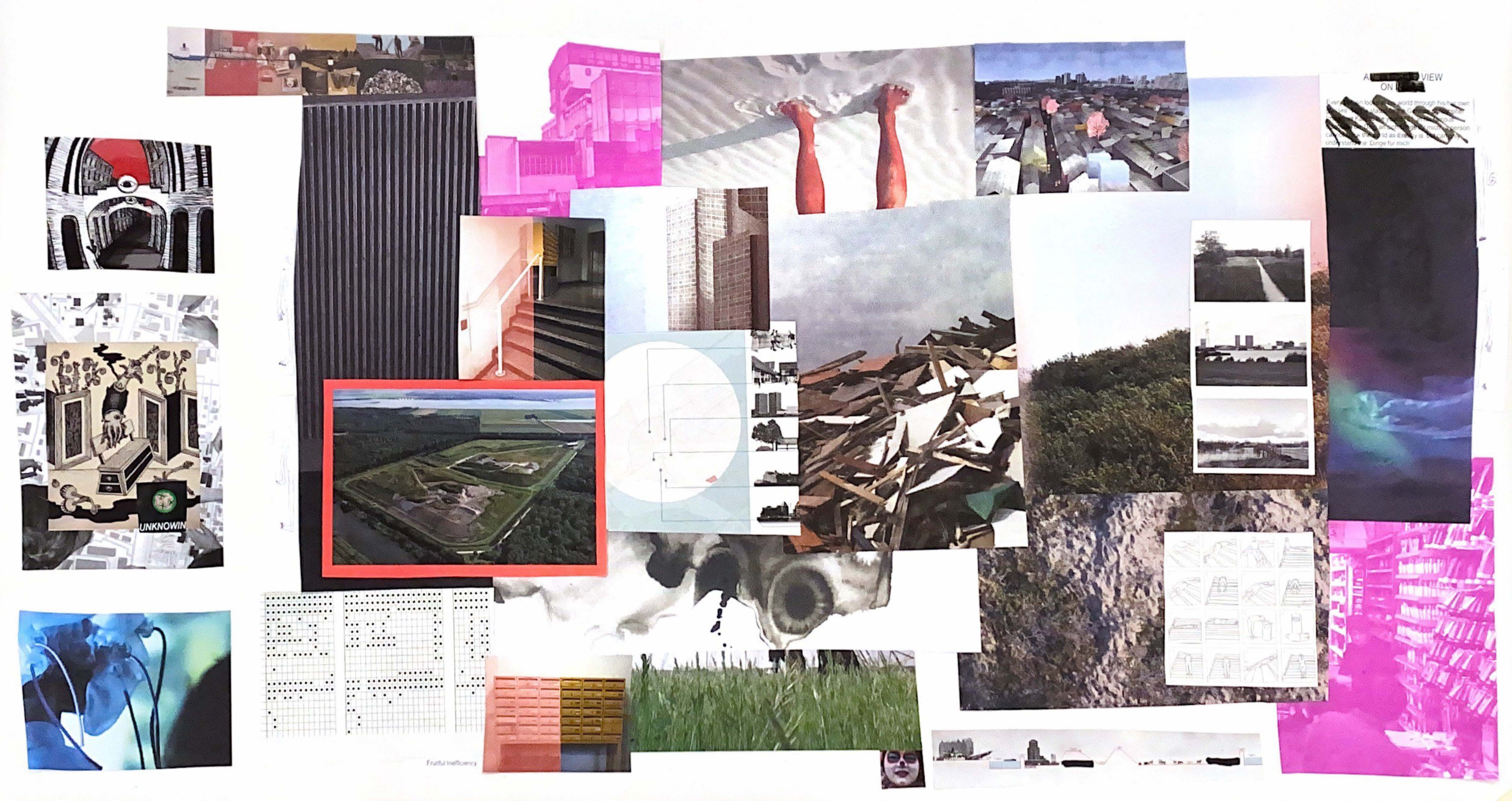

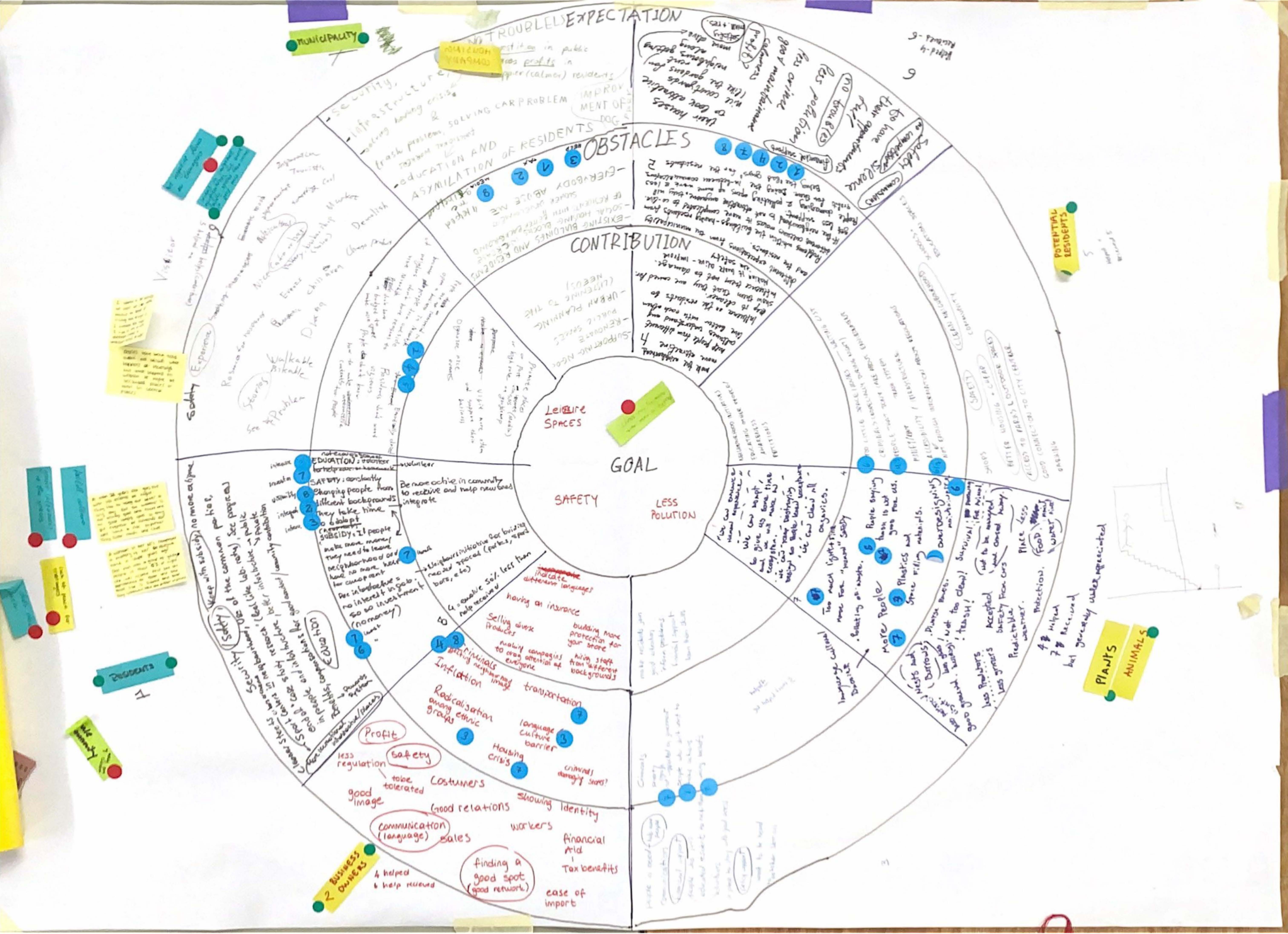
Spatial design is a complex matter by nature. At various scales from cities to interiors, there is always a context with many preconditions that the designer has to take into account. In developing the ability to deal with the specific context from their own perspective, to act with an autonomous mind in an applied context, it plays a key role where designers themselves are situated. TRAVEL is an educational programme that enables future spatial designers, by means of travel, to discover their own preconceptions, to critically examine them, and to get to know their own position from the way they perceive their environment. Subsequently, the programme also enables them to use their own observations as personal special features in their designs. Through encounters, explorations and experiments in four successive phases, TRAVEL gives future interior architects curiosity, confidence and skills in gathering and interpreting information and developing personal design strategies.

In which participants gather observations through spatial exploration.
Image: Nika Dundua
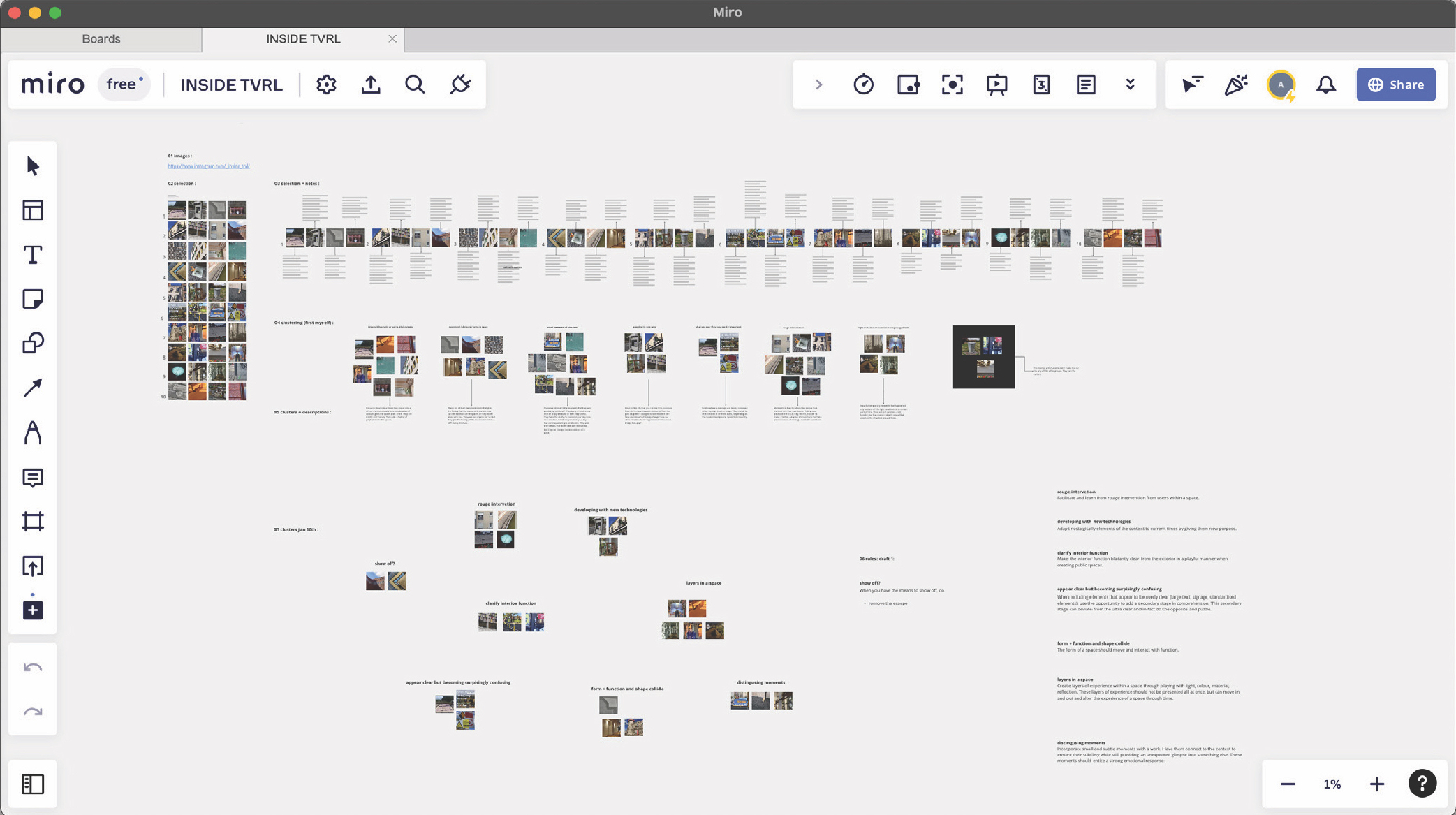
In which participants choose from among the many observations the ones they find most distinctive and/or most surprising and interpret and deepen those observations.
Image: Alicia Rottke Fitzpatrick
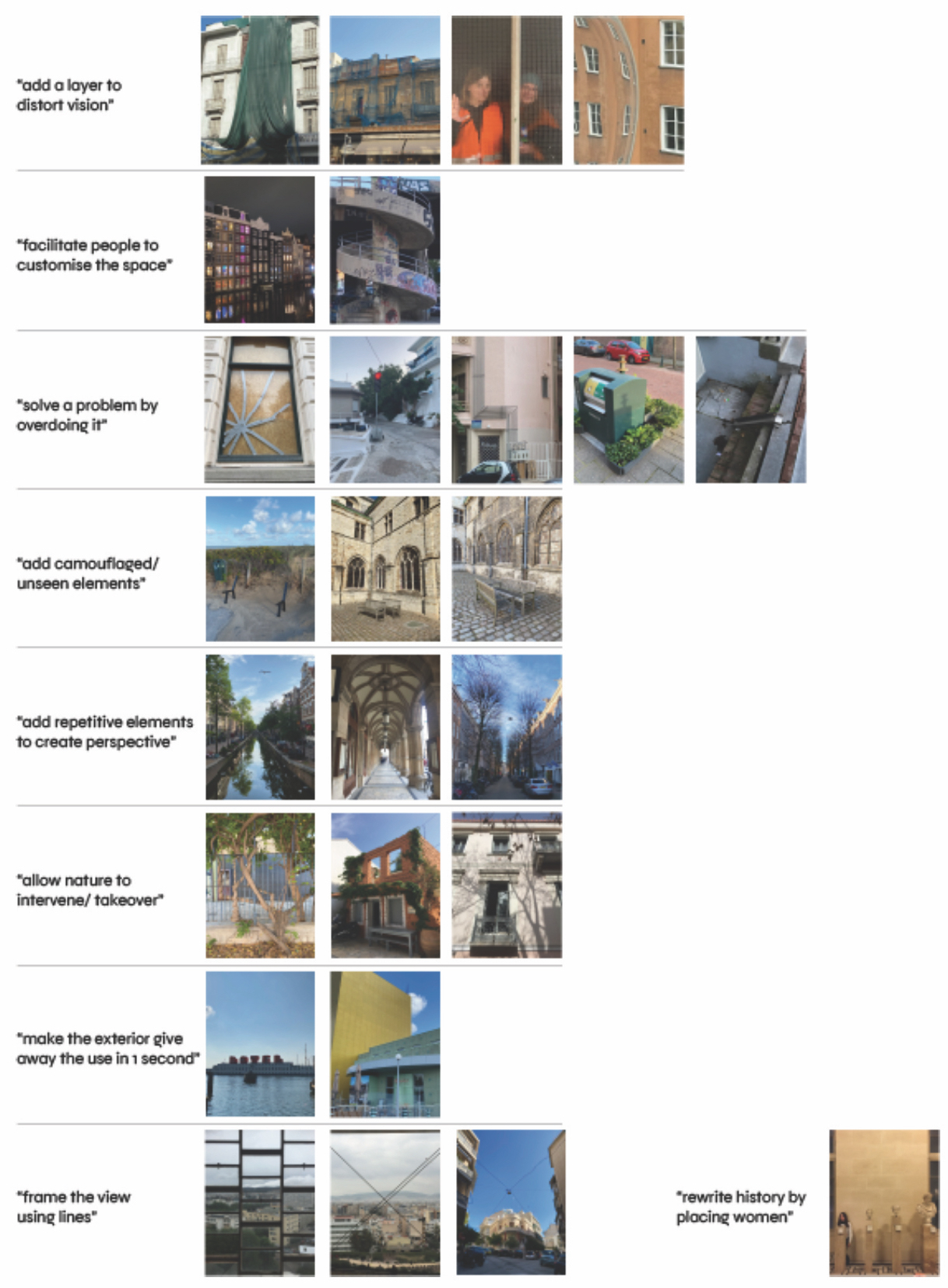
In which the selected observations are grouped and the connecting concepts within the grouped observations are identified and transformed into rules.
Image: Ina Patsali
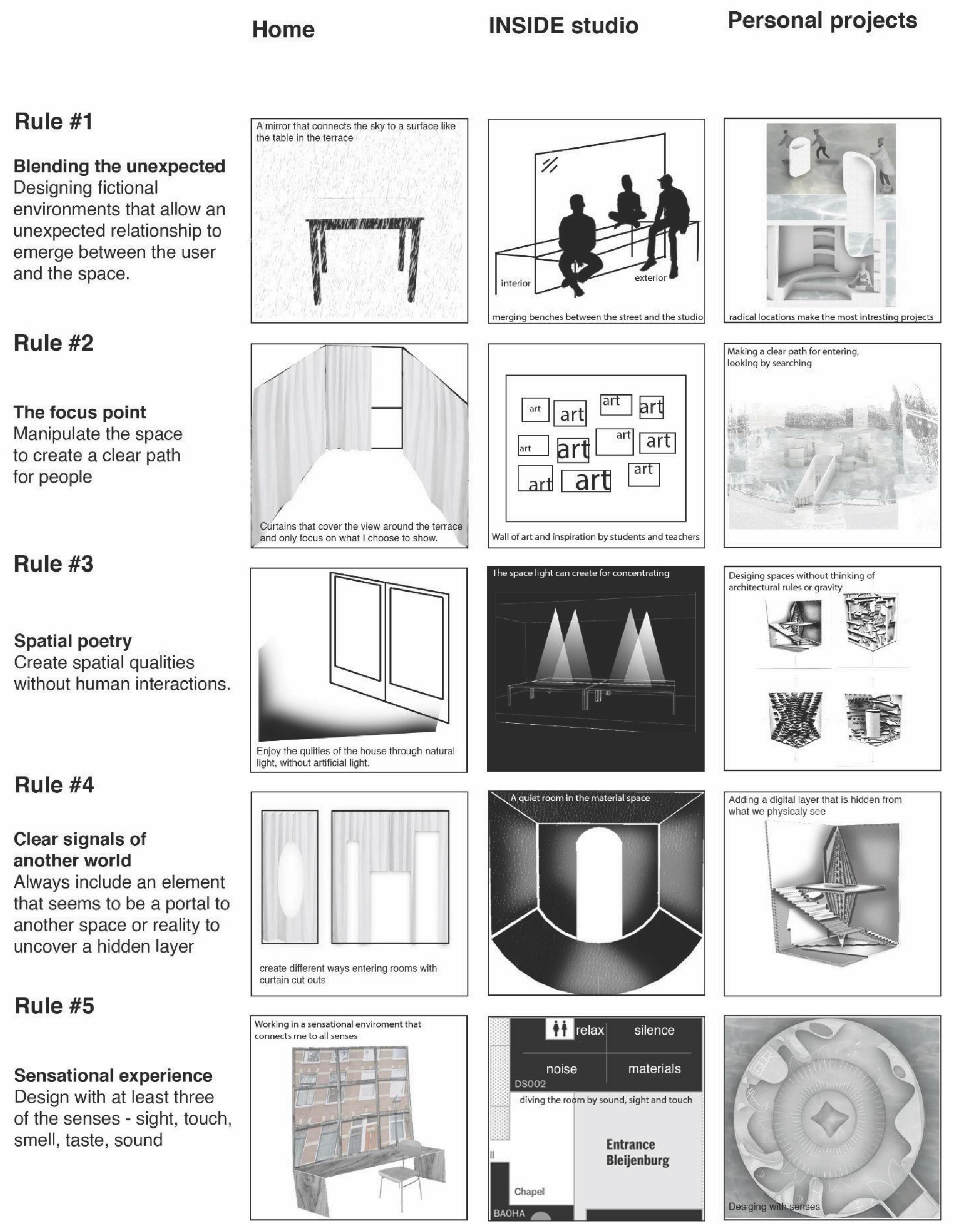
A concluding 'matrix' exercise in which the rules created by the participant, revealing their own preferences and preconceptions, are enabled to influence design tasks.
Image: Adar Cohen
The programme focuses on skills involved in developing personal research and design approaches and personal positioning in the professional field. Part of the programme includes workshops on presenting from one's own position, using modelling as a design research method, developing narrative short films, graphically design one's own research papers, getting acquainted with methods for transforming research results into design principles, participatory introduction to socratic organisational models and realising 1-on-1 presentations in try-outs. In addition, specific workshops proposed by the Studio tutors are part of the curriculum.
The first semester begins with a comprehensive introduction on the KABK workshops and includes participation in the workshops offered by second-year students as part of their 'learning by teaching' programme. Finally, it is possible for students to participate in the workshops offered extracurricularly as part of the Master Collaborative Programme.